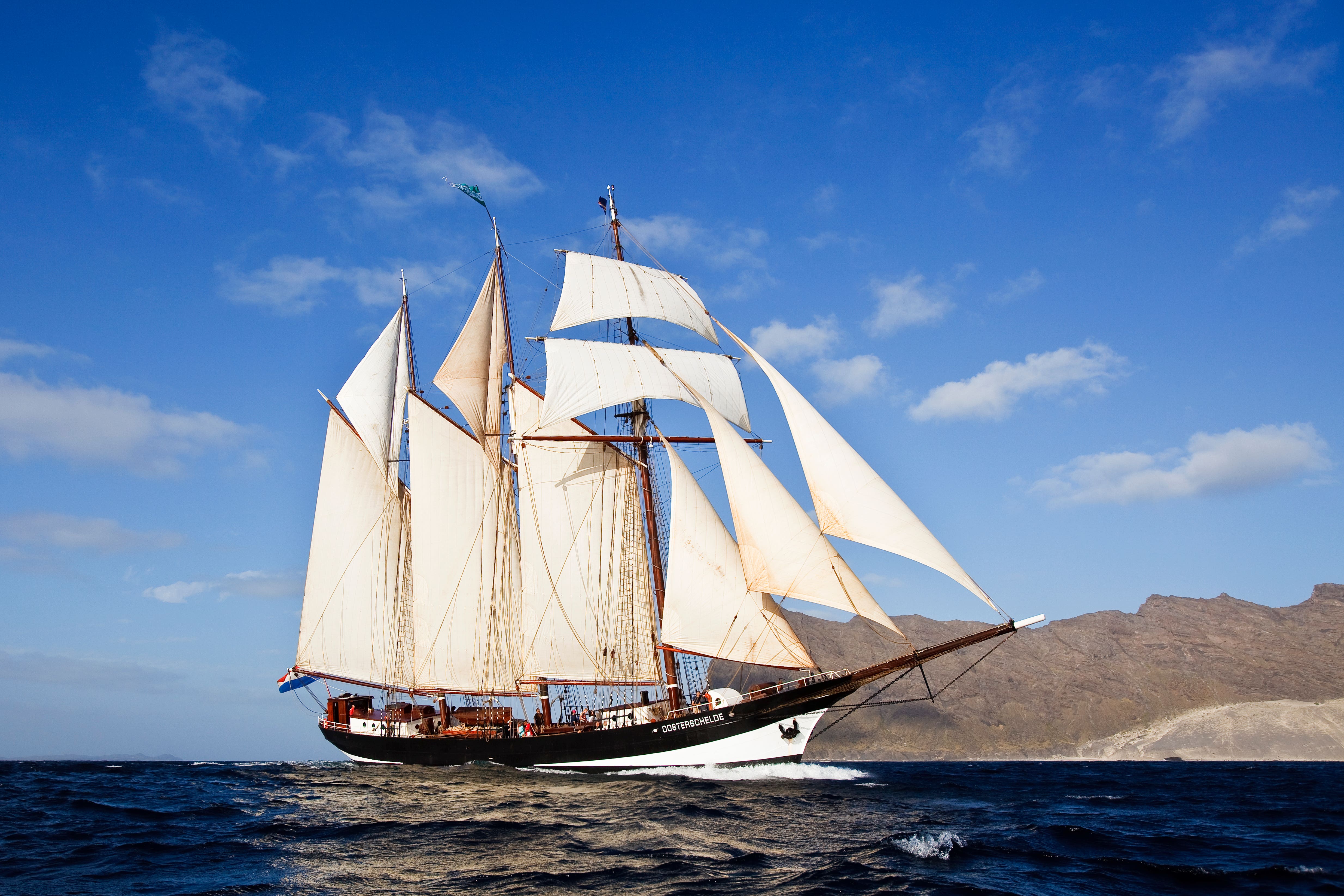Darwin’s voyage retraced in hope of creating next generation of conservationists
A two-year journey around the world will become the nucleus for 200 young scientists working to stop the decline of nature.

Nearly 200 years after Charles Darwin developed the theory of evolution while sailing around South America, a team of naturalists are hoping to create a new generation of conservationists by retracing the famous voyage.
Setting off from Plymouth on Tuesday in the Dutch tall ship Oosterschelde, the team will meet 200 promising young scientists from around the world who will work on projects in countries along the way.
Team leader Stewart McPherson hopes to create a “ripple effect” among the group of mostly 18 to 25-year-olds who will leave the project with the inspiration and knowledge to protect species in their home countries.
Those chosen are “everyday people” but “stubborn”, who “won’t let animals or plants fall off the cliff of extinction”, Mr McPherson said.
Darwin himself was only 22 when he stepped onto the HMS Beagle in 1831. He spent five years travelling around South America and the Pacific, reaching Australia and New Zealand before returning through the Atlantic to England.
It was on this journey that the theory of evolution crystallised in the naturalist’s mind – seeing rainforests for the first time in Brazil and unique species on the Galapagos Islands.
His discoveries formed a large part of his landmark book On The Origin Of Species, which caused a monumental shift in how people understood the processes of the natural world after it was published in 1859.
I always think it is very much worth reminding ourselves on a daily basis that humans and the rest of the living world share a common origin
Although Darwin is largely credited for the theory of evolution, it was almost simultaneously but independently developed by fellow scientist Alfred Russell Wallace while he was travelling in south-east Asia and the two co-published a paper together before the release of Darwin’s book.
Dr Sarah Darwin, a researcher at Berlin’s Museum Fur Naturkunde, said her great-great-grandfather’s greatest legacy is the understanding that humans are as much a part of the natural world as any other species.
She said: “I always think it is very much worth reminding ourselves on a daily basis that humans and the rest of the living world share a common origin.
“Darwin was saying that 160 years ago, that we were related with all other nature. We’re not above it, we are part of nature.”
She believes the current project, officially called Darwin200, will create a community of conservationists who will be better equipped to protect habitats and species than if they tried as individuals.
Dame Jane Goodall, who has spent six decades studying chimpanzees and working to inspire more people to love and care for the natural world, is a patron of the voyage.
She said: “We all know we’re in the midst of the sixth great extinction with a lot of doom and gloom about the problems facing the environment, climate change and loss of biodiversity.
“This voyage will give many people an opportunity to see there is still time to make a change. We all have a role to play.”
The young conservationists, named Darwin leaders, will not sail but will instead work on projects while the ship is docked, producing a short film, written report and essay on one of the thousands of species Darwin studied on his trip, while thinking of ways to better protect them.
Researchers on board will conduct surveys on biodiversity and air temperatures as well as documenting pollution from microplastics and recreating some of Darwin’s experiments on ballooning spiders, named because they spin webs to catch the wind and travel by air.
People are also invited to take part in activities and competitions online in what Mr McPherson called the “world’s most exciting classroom”.
He said 30 children will visit the Galapagos – the “magical, sparkling jewel in the voyage” – and that others can join parts of the voyage as passengers, with the expedition looking to fill places for some legs around South America, between Rio de Janeiro and Puerto Lucia in Ecuador.
Dr Darwin, who like her ancestor has written a book on evolution, said it has never been more important for people to understand how animals adapt to fit their environment so that people can “move forward with nature” and navigate out of the current climate and biodiversity crises.
Mr McPherson said conservation is “not rocket science” and that everyone can make a difference, citing one man in the Cayman Islands who single-handedly saved a blue iguana from extinction because he was the only person who wanted to.
Of the Darwin200 voyage he said: “This is about hope, it’s about future and it’s about changing the world.
“We can solve things if we care. If we don’t care, we won’t, if we care, we do. It’s binary. That’s the whole point of it all.”
Bookmark popover
Removed from bookmarks